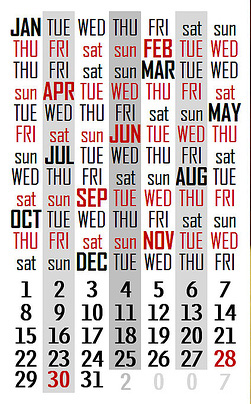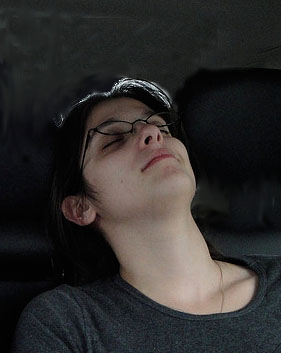 TIME HAS FLOWN by since I wrote here last. I’ve been recovering from being so ill, and it has continued to be a slow process. I went back to library work, just a smattering of short days only, late in July. I’m still not back to my regular schedule.
TIME HAS FLOWN by since I wrote here last. I’ve been recovering from being so ill, and it has continued to be a slow process. I went back to library work, just a smattering of short days only, late in July. I’m still not back to my regular schedule.
Through June and July, I stayed home a lot, sleeping whenever I was tired and doing what I could when my brains came online. I played video games when I was awake but unfocused, World of Warcraft and Skyrim and Guild Wars 2. I grew very sick of being in bed, reading listlessly, restlessly, when I didn’t even feel up to sitting at the computer.
The days passed slowly but the weeks sped by in retrospect. More on that, because this is a post about time.
TIME TIME TIME
One of the interesting books (once I had the brains to follow anything meaningful) was Claudia Hammond’s Time Warped (public library). We all understand time, kinda, unless there are neurological problems in our brains (like having one’s hippocampus removed in an effort to control epilepsy, then not being able to imagine the future). Or rather, we think we do, when we even think about it. But the evidence suggests that time is not only not what we think, but we don’t necessarily experience it the same way as those around us. Yet time is the fundamental yardstick to how we frame our mental reality.
Here’s my favorite thought experiment from the book, the first time I really sat up and said OMG YOU’RE KIDDING. If I said that Wednesday’s meeting has to be moved forward two days, what day will it occur?

This hardly seemed like a difficult question, and I immediately had an answer. (I’ll tell you at the end. Decide your answer before we get there.) Some of you may recognize where the “trick” lies, and perhaps you’re sensitive to the question because of having gotten a different answer from someone else at a crucial time. I’ll point out (as does the author) that there is no right or wrong answer, just distinctly different ways of experiencing time.
There are lots of perspectives discussed about the perception of time, how it warps through memory, anticipation, boredom, novelty, and attention. I’m not yet finished with the book but I’m emphatically looking forward to her promise that there are ways to put this research to practical use. If time is largely a mental construct (which is her thesis throughout the book), then what are the mental skills I can use to make the best and happiest use of my time?
A HAZY SHADE OF WINTER
Those who know my gaming habits know that Winter is more than a season to me; it’s the name I call my main character in WoW (officially Winterice). It’s wryly appropriate that much of June was spent hazily following that character around, doing simplistic game activities I ignored before, things like fishing and cooking. I didn’t have the working braincells to do anything harder. I made notes and lists because I couldn’t remember what I was working on from the day before.
It kept me from being screamingly bored. Time passed slowly enough anyway, with my brain in a permament state of cotton fuzz. If I was too awake to sleep, or coughing so much I couldn’t, I needed a distraction to make time go faster, to tire myself (sitting up awhile was tiring) until I could sleep and rest and arrive at that future time when I might feel better.
Being bored or tired is one of those things researchers love to experiment with. Start the stopwatch on your smartphone, don’t look at it while it runs, and then look when you think 60 seconds have passed. Test yourself at different times of the day, under different circumstances. (You’ll get better with practice but that’s beside the point here.)
Time will warp if you’re bored, depressed, tired (or ill!), and you’ll swear that a full minute has passed but only 40 seconds might have gone by. When my mother was in the hospital, she would complain people would only stop in “for a few minutes” and she was alone 23.5 hours a day… yet I knew her friends were there 2-3 hours at a stretch, sometimes all afternoon or all evening. She wasn’t just whining; she really experienced the empty hours as lasting longer.
(or ill!), and you’ll swear that a full minute has passed but only 40 seconds might have gone by. When my mother was in the hospital, she would complain people would only stop in “for a few minutes” and she was alone 23.5 hours a day… yet I knew her friends were there 2-3 hours at a stretch, sometimes all afternoon or all evening. She wasn’t just whining; she really experienced the empty hours as lasting longer.
Engage the brain with something, anything, and time picks up. Get into the state of flow, and time zooms by like a rocket. Flow was beyond my reach. Engagement with a game that I can do pretty automatically, but which still requires attention, was the perfect distraction and probably saved my sanity.
HANGING ONTO HOPE
Each time I woke up feeling a little chipper, I got ambitious. Setting the games aside, I’d work on the Deluxe T&T material, or catch up on emails. I could handle that — hey, lookie, I got through all these sections of the draft! I would be so proud of accomplishing something back in the real world. Maybe I could run an errand! Yet after an hour of activity, energy drained out of me like someone pulled the cork. I’d skip the other places I meant to go, stagger home and fall into bed for hours, only to wake up with cotton brains once more until I got a long sleep. Like 10 or 12 hours worth.
FUNNY HOW MY MEMORY SKIPS
When I look back, those long days dragged but the months … where did they go? I feel like I lost most of June and July; they evaporated almost overnight. And interestingly, Hammond addresses that too, a reverse example of what she calls the Holiday Effect.
Briefly it is this: during an exciting holiday or vacation, the days are full with merrymaking, atypical experiences, and you accomplish multitudes of things before lunchtime. The evening rushes at you with even more delights, and the days fly by. Suddenly you’re going back to work almost before you’ve unpacked and settled in. Yet looking back, the holiday was full of memorable events and feels much longer than it seemed at the time. Hammond maintains that prospective and retrospective views of time alter how time is assessed.

While ill, my days had little that was memorable. My character Winter dinged 600 in Archaeology; my hunter dinged 90 somewhere in there. I read (or re-read) a slew of completely forgettable books before I started being able to really pay attention; I couldn’t tell you titles or authors to save my life. The days dragged. Without benchmark memories beyond what I mention here, there’s little to frame the weeks I was down.
In one’s routine life (absent that Holiday Effect), one of the ways adults seem to assess passage of time is how much happens. On the average, most people remember 6-9 “events” over any two week period. (Try it, without looking at emails or diaries or timelogs. Check yourself afterwards though, because you’re likely to think you saw that friend of yours last week, but actually it was last month. More time warpage.) I didn’t have much happen, so to pull up 6-9 things … a doctor’s visit, near-collapse at the pharmacy while waiting for a prescription, or dinging my character’s Archaeology skill … I have to encompass more than a fortnight. But my brain still says that usually fits in about two weeks of time, so the fact that a month or six weeks have passed refuses to correlate.
LOOKING OVER MANUSCRIPTS
I’m feeling better, that’s for sure. I’m still lying down, resting often, but I’m reading more interesting books and remembering them — books like Time Warped, but also a little of the Jefferson biography The Art of Power and some Roger Zelazny short stories. My gametime now includes activities that are a little more challenging. I’ve done a little sketching — short of physical exertion, completely new creative work remains THE most difficult and draining thing for me, whether writing or art.
Still, I’ve put in long days on Ken’s draft of Deluxe T&T. Working with someone else’s words and concepts requires my brains to be in working order, with an element of creativity, but I’m not making it up out of whole cloth. In fact, I am working very hard to keep Ken’s voice and content, albeit much rearranged. I intend to write a separate blog post (this weekend I hope) for the Deluxe T&T blog about what I’ve been doing and why and how, so I won’t reiterate it here. There will be a video uploaded to YouTube in the near future too.
THE SPRINGTIME OF MY LIFE
Making that video was another exercise in time warpage.
The weekend of July 27-28 was Trollcon/FBIcon, up in Scottsdale, Arizona. It’s part relaxacon, and part just a mini-con, very small and unpretentious, an excuse for friends and hardcore fans of FBInc and T&T to come together in the Phoenix Metro Area during the hottest month of the year. (Hotel rooms are cheap, at least!)
It also represented an unmatched opportunity to meet with some fans and with the Fellowship — Ken St Andre, Rick Loomis, Bear Peters, and Steve Crompton — to discuss progress on the Kickstarter (here’s the Kickstarter link for anyone who hasn’t been following my storytelling for long). Ken and Steve drove down from Phoenix to pick me up, in part to conserve my energy by not having to drive myself, and in part to get in a little extra time to visit. By the end of the two-hour drive, I was wiped out, and instead of going over to the con, I crashed at Steve’s place for several hours, waking up with — you guessed it — cotton for brains. Coffee and Chinese takeaway brought me back to life.
That evening, the Fellowship met and we went over, in detail, the work I’d been doing (little by slowly) on the rules: answering each other’s questions, debating solutions, examining assumptions internal to the game world and external to game design and mechanics. Although my energy ebbed and flowed, we got a helluva lot accomplished, agreements worked out, and ideas nourished. The next morning, after a good long night’s sleep, we gathered at the convention to sit down in front of everyone there about where we were in the project, show off the finished material that had been done to date, and answer questions from attendees. During all this, we would be videotaped by professional videographer Jim Miller, who did Ken’s segment of the Kickstarter promotional video.
When we were finished, Steve asked him “How long WAS that anyway?” When the raw video turned out to be just 30 minutes, we were all astonished and agreed that it felt like an hour. I’m sure Hammond would have an explanation but I can’t pull up what it might be. I’m reaching the end of this blog after writing all new material for the last three hours, and my brains are starting to turn into cotton again. You would be correct to assume I’ll be napping soon after I hit the “Publish” button here, so I’m going to wrap this up.
STOP AND REMEMBER
At the top of this post I brought up this mental experiment: If I said that Wednesday’s meeting has to be moved forward two days, what day will it occur?
My immediate answer was “Monday.” Was your answer Friday? Both are correct, given the phrasing of the question, but they encapsulate different ways of experiencing time. Does time flow at you, or do you actively move through time? Check out Hammond’s book for a longer discussion of this, which I honestly found surprising and fascinating.
And with that, I’m done here. My kudos and appreciation to Paul Simon for the lyrics I used to frame this blog’s discussion of time. (Hard to believe the singers, and we, were ever that young! Quick, name the year this album came out. If you were alive at the time, you’ll probably overestimate the date. More systematic time warpage.)

My immediate answer was Friday, but after thinking a bit I settled on Monday. Although I’m pretty sure that the correct answer is “At a significantly more disruptive time.”
Glad to hear that you’re feeling better. Hopefully things will be back to “normal” soon?
Without a doubt, the one correct answer must be “At a significantly more disruptive time.” Good catch!!
Interestingly enough if Liz had said the meeting needs to be moved up two days I would have given a different answer than I did
Groobleday.
And my answer was Monday. But then I thought “Wait, forward means going forward into the future, therefore Friday. But as you say Liz, either answer is correct. Very interesting stuff. I have a huge interest in time as a concept and as a quantum force (like gravity). The current thinking on time among many physicists is that time moves in the direction it does (the arrow of time as they call it) because that’s the way the universe moved when it exploded forth. If the universe had come into being is some other manner, we might not have time at all, or cause and effect might not be linked as things mostly are in this universe.
Some theorists say that while we can travel into the future (and back to our own present) We will never be able to travel back into a past before the time we create a means to travel into the future.
A couple of years ago Stephan Hawkins had a party to welcome any and all time travelers to appear and celebrate (or at least reveal themselves) He announced all over news media and the internet to make sure the message got out. However, no one showed up for his party. So if no one in the whole past and future history of life on Earth took him up on his offer – it seems unlikely that anyone developed a means to easily travel into the past. So perhaps it can’t be done.
Just for the record, travelling ahead into the future is very possible and in fact anytime you fly on a jet you are “skipping ahead into the future by a billionth of a second or so. I guess we are all travelling through time really. We are molecules in a river that is constantly flowing downstream and there is little we can do to change that, so make the best of the time you have…
Thanks Liz for the stimulating post!
Steven S Crompton http://stevenscrompton.wordpress.com/
My immediate answer was Friday, for the reasons Steven gave. I too have a great interest in time as a concept, coming mostly from a philosophical perspective. Zeno’s Paradoxes have an interesting resolution when one considers time as a quantity on the same level as space.
For those unfamiliar with it, Zeno’s Dichotomy Paradox says that catching up to a stationary object is impossible, because first, one must get halfway there, then halfway across the remaining distance, and so on ad infinitum. However, this does not take time, and therefore velocity, into account on their own terms. If we assume a constant velocity, then the infinite sum of halves (1/2 + 1/4 + 1/8 + 1/16 …, which has an upper limit of 1) representing the distance also represents the time taken to move that distance, so each unit of distance has its own associated unit of time. This is made concrete in the equations of Einstein’s theory of special relativity, in which time and distance are distorted by extremely high velocities; time slows down, and length and distance contract, both in the same proportions.
More interesting to me is the observation (for which I cannot find a specific source to credit) that a recent solution of the equations for general relativity and quantum theory results in time disappearing from both sets of equations. In effect, we can unify the theory of the macroscopic with the theory of the microscopic by making time a non-entity. The following link introduces an article from Scientific American that examines the idea:
http://www.scientificamerican.com/article.cfm?id=is-time-an-illusion
Cause and effect are also a source of consternation for me, thanks largely to the writings of David Hume. Would causality break down if time were simply a fourth dimension of space that one could move through at will? Does it even exist in the first place? If time is indeed an illusion, how do we define causality at all? By necessity, a cause must precede an effect, but only because of the “arrow of time” as mentioned by Steven. The writings of Paul Davies, particularly his book “About Time,” are a great starting point for anyone interested in this aspect of reality, whether as a science or as a matter for philosophy.
Many thanks to Liz for the interesting post, and to Steven for the fascinating thoughts on the matter.
I have always been fascinated by the physics of time, which you both are addressing in your comments. The SciAm article definitely will merit longer perusal when I can wrap my cottonball brains around it.
What’s interesting to me is that I evidently FAILED to convey the Time Warped author’s focus on the extent to which time is an internal, mental function (although no single place in the brain can be pinned down as our clock-tender), and the perception of which is highly mutable.
Time, as something to be addressed in physics, is one thing. Like quarks or neutrinos, it’s addressable (given time, I expect!).
The workings of the human mind, and the brain, fascinate me much more. What is your spatial relationship to time? Is the past on your left or the right? (Likely, if you are reading this in your native language, it’s the former iirc.) Is “soon” higher up on your computer keyboard or lower? Are weekends of a different shape than the regular workweek, and why are your most impactful memories of public events clearest from your mid-teens and your most impactful memories of personal events (barring a major lifechange) from your early 20s? Why is 1492 easy to remember, or even 1914, but the year Lennon was shot, or the year Katrina hit more difficult if you weren’t there on hand for one or the other? What month did the Boston Marathon bombing take place?
The stories we tell ourselves about ourselves do much to constitute our identity. Memory and emotion play a huge part in this, of course, and both of those alter our perception of time. Along with, I have to say, just about every other experience we can have as human beings.
And that, at the core of it, is perhaps where I went wrong at the start of this blog. The blog isn’t about TIME so much as the =perception= of time, and those highly varied perceptions have profound consequences.
To all hopeful astrophysicists and Puzzlers-of-Mental-Perceptions: It might interest you to know that Zeno’s Paradox of Motion (aka “Achilles & the Tortoise”) was solved either in the past or in the future by Ozma of Oz (“Paradox in Oz” 1999) and by Alan Scott (Green Lantern #39 1949, “the Impossible Mr Paradox”). Zeno himself was killed in battle with Captain America in Avengers #15 (1965).
Reality is for people who cannot handle fantasy.
My immediate answer was Friday, and because of the way my brain is wired, I have a difficult time accepting Monday as an appropriate answer. In fact, your answer might have been different if it had been made known to you that the statement about Wednesday’s meeting being moved forward two days was made on a Tuesday.
As for the party Steven S Crompton mentioned above that Stephen Hawking held for time travelers, why would any time travelers from the future bother to even try to go to the party when they already know from their history books that they didn’t make it? The fact that no one showed up doesn’t prove anything about time travel. Maybe Stephen Hawking’s idea wasn’t as brilliant as he thought. Or maybe he just wasn’t taking it seriously.
I’ve posted a few thoughts about time travel on my blog: http://emilahthicke.wordpress.com/
I haven’t posted there in a while, as I’ve been sick too and then when I felt better, I had other things I wanted to catch up on first. It doesn’t seem so long ago that I wrote my last post, but it’s actually been months. Regardless, maybe you’ll find some of my previous posts of interest. Hope you are feeling better soon.
For me the ‘move forward two days’ depends on immediate frame of mind in interpreting the phrase more than time perception. Is it looking at moving it ‘forward’ on a calendar, thus to Friday? Or moved forward as opposed to the more common phrase of ‘moved back’. Moved back usually means it comes two days later, with that phrase in mind the ‘opposite’ would be ‘moved forward’=sooner.
In my case I see both the young woman and the old, so I’d ask for clarification or a specific date. I’ve also encountered another variation of this. Moving two days doesn’t mean start time ~48 hours displaced from the point of origin, it means ~72 hours, two days =between= old point and new, noninclusive.
Personally, I swim back and forth in time, but neither matters. I’m caught in a riptide. 😉
Get better soon, Liz
I went for Monday.
In an office, a meeting is “moved up” or “moved back.” “Moved forward” seemed closer to “up” than “back,” so . . .
Of course, you have to wonder about how “moved up” and “moved back” were established. If you think of time as an appointment book, where the future is toward the back or bottom of the book, it makes sense.
I have often noted that time moves irregularly for me. I put something (say, a bill that is not due for two weeks) off for “a couple of days” and suddenly I realize it is 30 days overdue. I comment on something that happened “a couple of years ago” and suddenly I add it up and realize it was 25 years ago! And when did I get to be 65? Dag nab it, just “a couple of years ago” I was only 25. 😉
Don’t disillusion me, Rikk! When I last spoke to you on the phone, you WERE 25 and I still think of you in that way!
Actually, if someone told me an important Wednesday meeting was to be “moved forward two days” I would immediately ask “is that Monday or Friday?”. No reason not to be specific. I just noticed a link to Liz that had an old address, and was confirming the correct address, and ended up reading this post again. Darn internet – you can’t do “just one thing” without being distracted. Is it Wednesday yet?)